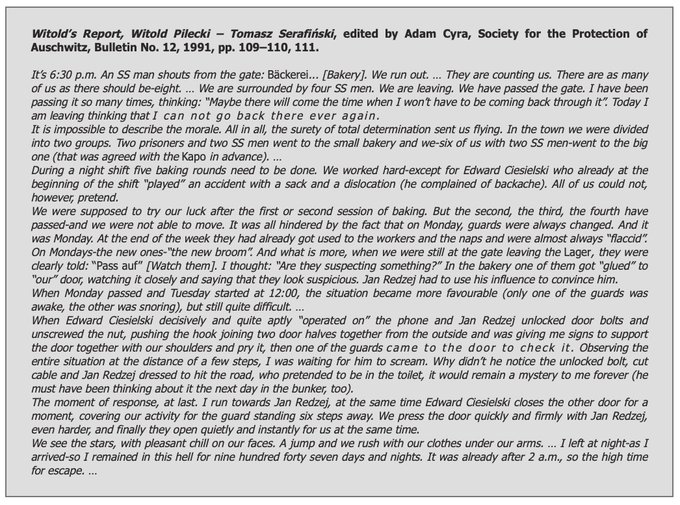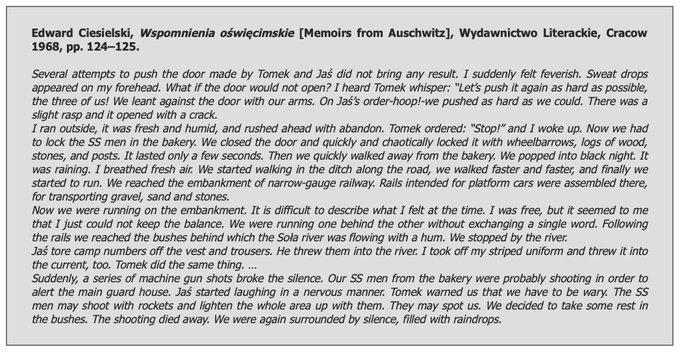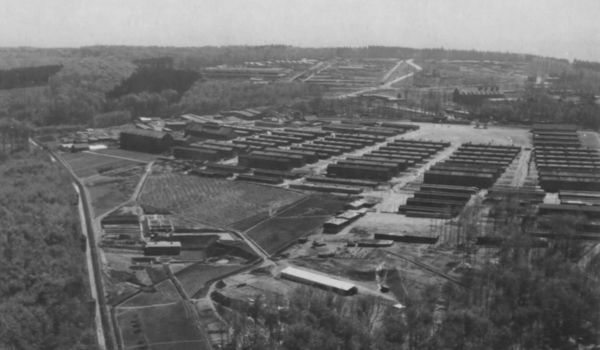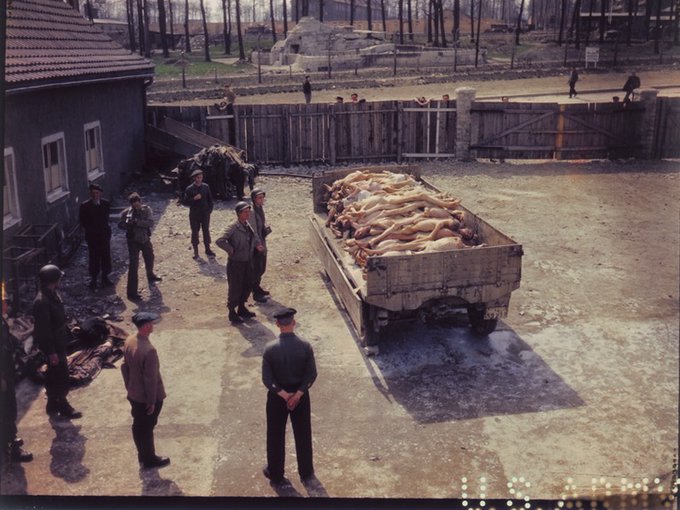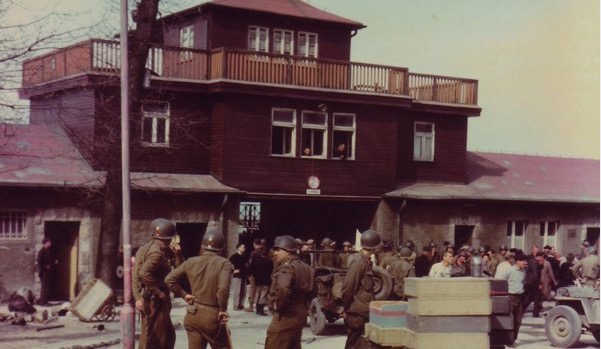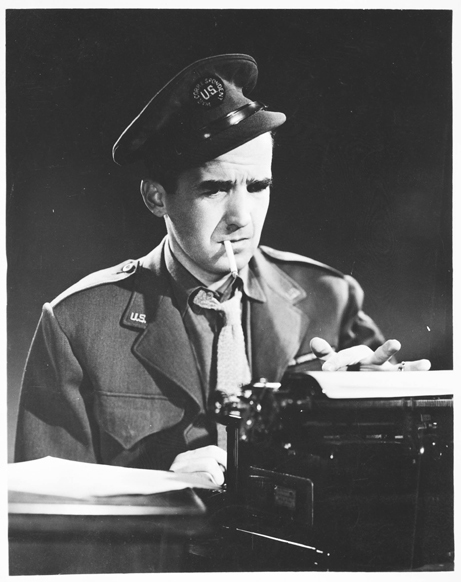
26/27 April 1943 | Three Poles escaped #Auschwitz: Edward Ciesielski (12969), Witold Pilecki (4859) & Jan Redzej (5430). #Pilecki was one of the co-founders of military resistance inside the camp. After the escape, he wrote an elaborate report about German crimes in Auschwitz. 



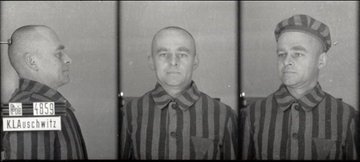
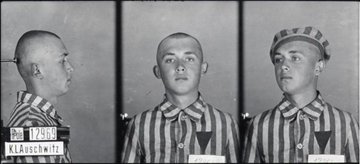
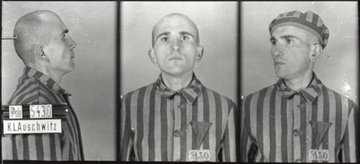
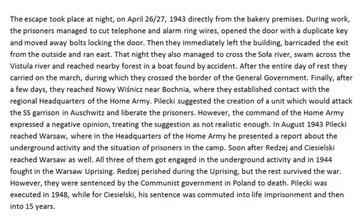
Telegrams sent by the camp Gestapo (Politische Abteilung - Political Department) in #Auschwitz informing about the escape. One mentions "Thomas Serafinski" (false identity of Witold Pilecki) and "Johann Retko" (Jan Redzej). The other, Edward Ciesielski. 

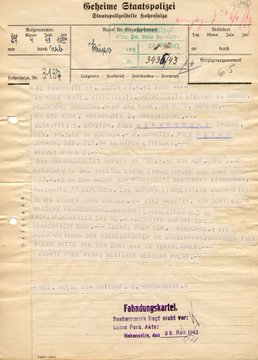
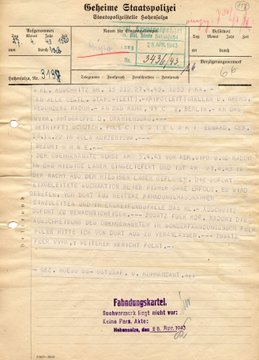
"I've been trying to live my life so that in the hour of my death I would rather feel joy, than fear."
(Witold Pilecki)
Read the report written by #Pilecki after his escape from #Auschwitz with very powerful final words directed to the reader: rtmpilecki.eu/raport-3/

(Witold Pilecki)
Read the report written by #Pilecki after his escape from #Auschwitz with very powerful final words directed to the reader: rtmpilecki.eu/raport-3/
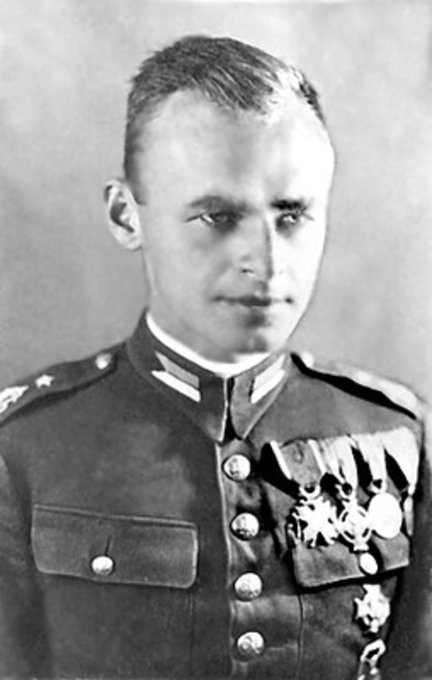

The detailed history of the Polish military resistance in Auschwitz is presented in our @googlearts exhibition: google.com/culturalinstit… 
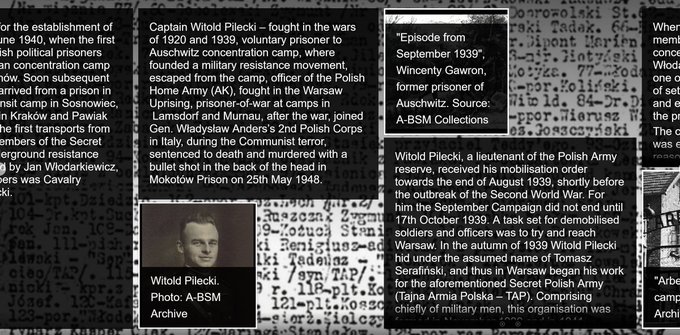
"Escapes from KL Auschwitz"
The lesson describes the geographical location of the #Auschwitz camp, its security system, repressions faced by captured escapees, the collective revolts and finally tells the stories of 25 escapes.
lekcja.auschwitz.org/en_15_ucieczki/
The lesson describes the geographical location of the #Auschwitz camp, its security system, repressions faced by captured escapees, the collective revolts and finally tells the stories of 25 escapes.
lekcja.auschwitz.org/en_15_ucieczki/
• • •
Missing some Tweet in this thread? You can try to
force a refresh
